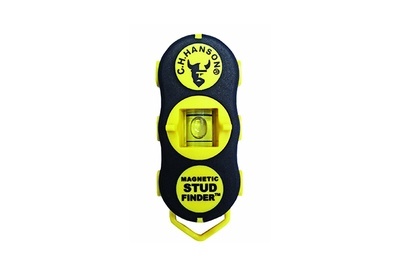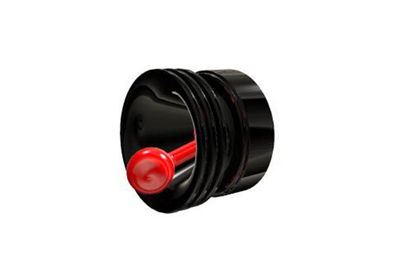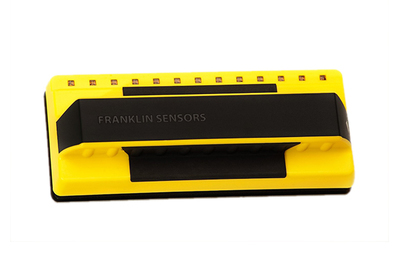Our pick
C.H. Hanson 03040 Magnetic Stud Finder
Equipped with two magnets, the C.H. Hanson is a basic, durable model that scans twice as fast as the rest.
Buying Options
*At the time of publishing, the price was $7.
The C.H. Hanson 03040 Magnetic Stud Finder stood out in 30 hours of tests against five competitors for its reliability and accuracy. For anyone using a stud finder only occasionally, a magnetic style does the job reliably for far less than you’d spend on a decent electronic stud finder. Most magnetic styles have only one magnet, but a second magnet in the C.H. Hanson expands its scanning area and reduces the time it takes to get a hit. Its pointed end and small onboard spirit level simplify marking a stud as well as leveling a picture or mirror. It’s also the most durable model we looked at, by far—from what we can tell, breaking it would take some serious effort.
Runner-up
Studpop Magnetic Stud Finder
This finder gives a visible and audible signal when it locates a stud, but it scans a smaller area and is less durable than our main pick.
If the C.H. Hanson isn’t available, we also like the Studpop, another magnet-based stud finder. The Studpop is unique in that it gives both an audible and visible signal when it detects a stud. It isn’t as compact or durable as the C.H. Hanson, and it has only one magnet, so the scanning area isn’t as wide.
Upgrade pick
Franklin Sensors ProSensor 710
The most accurate electronic stud finder we tested scans the wall in 13 places to display the entire width of a stud, and unlike the competition, does not require a fussy calibration process.
Of all the electronic stud finders I’ve used over the years, Franklin Sensors ProSensor 710 is by far the fastest and most accurate. Because it scans 13 points simultaneously, the tool can visually display the entire stud, rather than just a single edge, making it painless to use and virtually eliminating the false positives that plague other electronic stud finders. In addition, this model doesn’t require a fussy calibration step each time you use it, which gives it another advantage over the competition. It isn’t cheap compared with a magnetic tool, however, and it requires batteries. The ProSensor 710 is also available as the Precision Sensors Profinder 5000; the two are the same, so you should get whichever one is currently cheaper.







